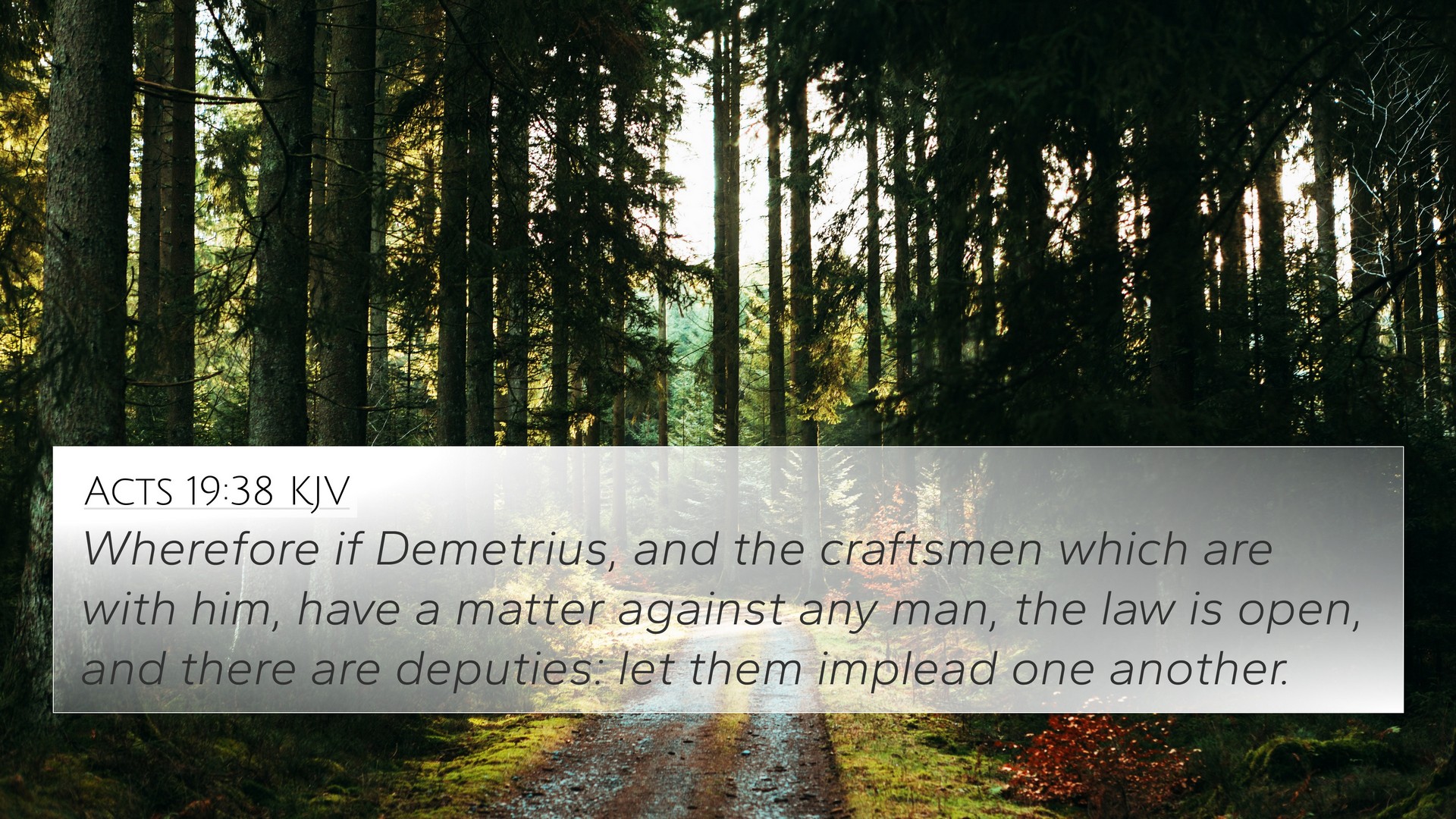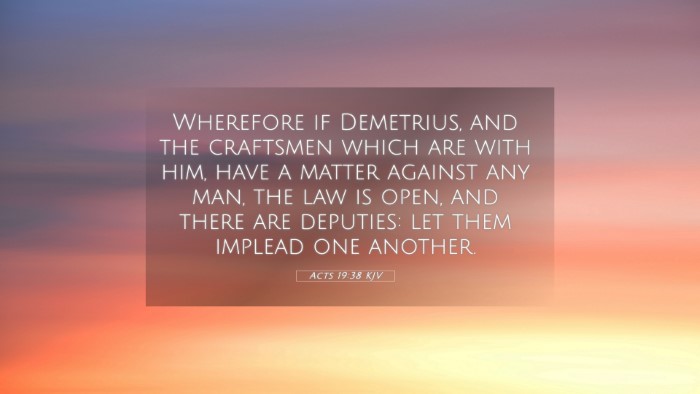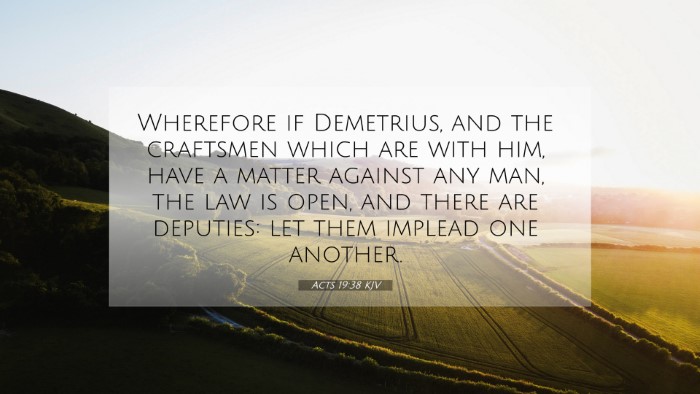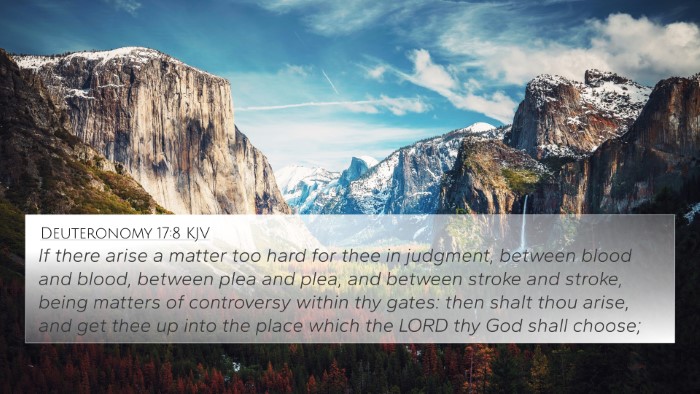Understanding Acts 19:38
Verse Context: Acts 19:38 reads, "Therefore, if Demetrius and the craftsmen who are with him have a case against anyone, the courts are open, and there are proconsuls; let them bring charges against one another." This passage emerges from a tumultuous time in Ephesus, where the Apostle Paul’s teachings were beginning to challenge the local silversmith guild’s prosperity, particularly concerning the worship of Artemis.
Summary of Commentary Insights
- Matthew Henry’s Commentary: Henry suggests that this verse reflects the importance of following lawful procedures and upholding justice within the community. Demetrius and his colleagues are encouraged to utilize the legal frameworks available to them rather than resort to mob justice, signifying the Church's reliance on divine justice through earthly institutions.
- Albert Barnes’ Notes: Barnes emphasizes the highlighting of the judicial process, showing how civil authorities are instituted by God to maintain order. This symbolizes the balance of spiritual authority and civil governance. Barnes proposes that the verse serves as a reminder for Christians to respect and obey lawful rulings.
- Adam Clarke’s Commentary: Clarke points out the sociopolitical environment in Ephesus during this time, suggesting that the marketplace served as more than an economic venue but also a forum for civic discourse and conflict resolution. He notes the irony in the silversmiths turning to legal authorities against Paul, as it symbolizes both their fear of losing influence and their attempt to manipulate the system in defense of their cultic practices.
Thematic Connections
This verse illustrates significant themes relevant to Christian life and practice, such as justice, community responsibility, and lawful conduct. It encourages believers to navigate conflicts within the framework of legal structures available to them, reflecting the broader scriptural mandate for order and decency.
Bible Cross-References
- Romans 13:1-7: Suggests submission to governing authorities as instituted by God.
- 1 Peter 2:13-15: Encourages believers to submit to human authorities for the Lord’s sake.
- Matthew 5:25-26: Advises settling disputes quickly to avoid legal repercussions.
- Proverbs 21:15: Notes that justice brings joy to the righteous and terror to evildoers.
- Acts 4:19-20: Highlights the need to obey God over men when facing legal challenges.
- Luke 12:58: Advises making peace with one's adversary before it escalates to court.
- Matthew 18:15-17: Outlines a step-by-step approach to resolving conflicts within the Church.
Comparative Analysis of Related Verses
The connections between Acts 19:38 and these referenced passages underline both the responsibility of Christians to uphold their faith and navigate secular systems justly. The emphasis on approaching disputes through legal channels reflects an underlying principle found throughout scripture regarding order, respect for authority, and the call to live peaceably.
Conclusion
Acts 19:38 serves as a profound reminder of the interplay between faith and civic duty. For believers, this verse and its interpretations guide them to uphold justice while being actively engaged in respecting societal laws without compromising their spiritual convictions.
Exploring Cross-References
To deepen understanding, one may explore tools for Bible cross-referencing. Employing a Bible concordance or a Bible cross-reference guide can aid in identifying thematic connections across scripture.
Understanding how to utilize cross-references builds a richer context for interpreting Biblical themes and can support sermon preparation effectively. This study method promotes a greater comprehension of the interconnectedness of scripture as exemplified by Acts 19:38.
Further Study Opportunities
For those looking to execute a detailed cross-reference between Gospels or delve into cross-referenced themes in the Bible, various available resources can support this endeavor. This holistic approach to scriptural study facilitates a comprehensive understanding of the text and aids in identifying connections between Old and New Testament scriptures.






